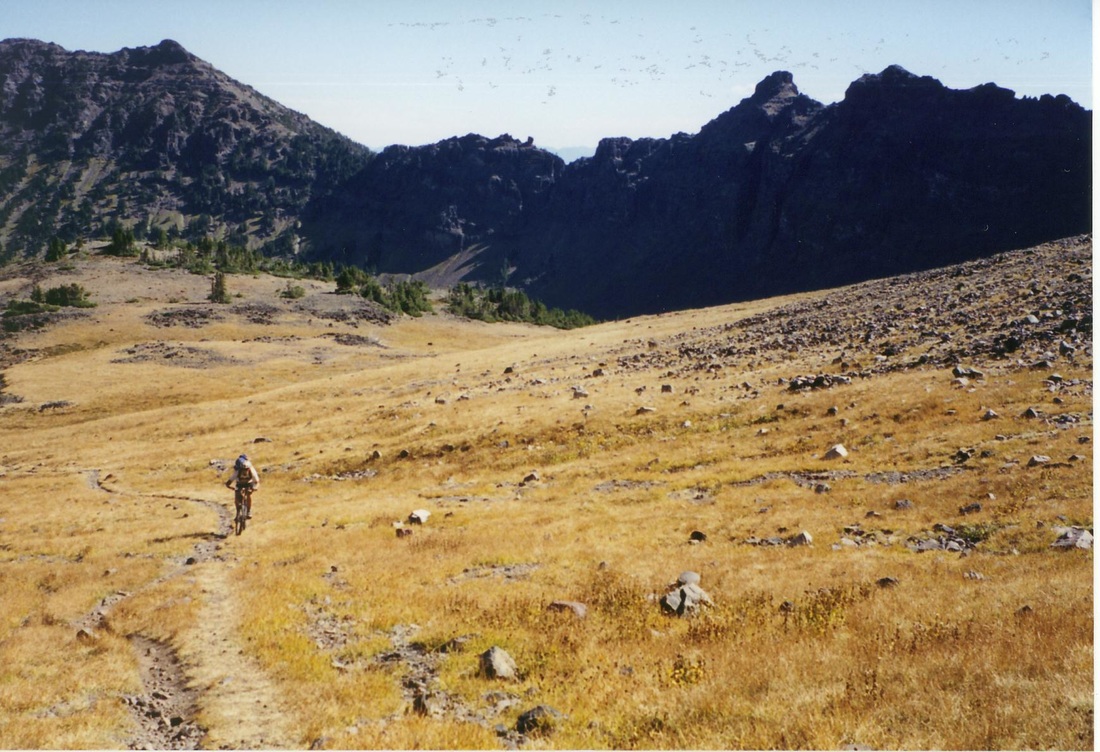|
Back in my younger days, my big city trying to find myself days, my pre mountain bike days, I'd get solicitations to donate to the Sierra Club or the Wilderness Society to protect land in some far off corner of the country. it could have been Montana, or Idaho, or Nevada. In those days it seemed like a good idea. I mean, who could be opposed to more wilderness. I never gave much thought to the people who lived nearby, never wondering if they had favorite trails that they would lose. After all no one lives way out there do they.
Growing up in Denver, the outdoors were always part of my life and protecting the land for future generations came naturally. I immersed myself in the wilderness literature: Edward Abbey, Aldo Leopold, Undaunted Courage, Beyond the Hundredth Meridian. Along the way I discovered that long days in the saddle fit my personality better than trekking. Long explorations pedaling unknown trails. Sometimes returning bruised and battered, other times dehydrated and wasted. Every time I came back more alive and more in love with the forgotten corners of Montana. Now I'm being told that because my steed is carbon fiber and not equine, I'm not having a true wilderness experience and even more I'm ruining the wilderness experience of others. Trying to understand how this can be, I returned to the sacred texts of my youth. Re-reading them to see where my understanding had diverged from them. Along with those I dug into the history of the wilderness act, trying to understand the meaning of primitive and unconfined types of recreation, and mechanized vs motorized. As a starting point in the next several posts, I'll tackle writers quoted in an article from Wild Earth that forms the framework for the Wilderness Society's opposition to bikes. Going back to the primary sources to see if I and and the author Mr. Scott agree. Until then, I'll leave you with the words of Senator Frank Church, 1977 "Wilderness in a Balanced Land Use Framework" "... it was not the intent of Congress that wilderness be administered in so pure a fashion as to needlessly restrict their customary public use and enjoyment. Quite to the contrary, Congress fully intended that wilderness should be managed to allow its use by a wide spectrum of Americans ... The Wilderness Act was not deliberately contrived to hamstring reasonable and necessary management activities ... restrictions on use may sometimes be needed to protect especially fragile locations. But in adopting regulations, common sense is required. In summary if purity is to be an issue in the management of wilderness, let it focus on preserving the natural integrity of the wilderness environment- and not needless restriction of facilities necessary to protect the area while providing for human use and enjoyment."
2 Comments
Joel case
12/8/2015 01:50:51 pm
I moved to Idaho 35 years ago and started mountain biking shortly thereafter. Classic trails on the west side of the Tetons, gros centre are all now off limits even though biking there is the true spirit of wilderness.
Reply
Lance
12/9/2015 02:36:11 pm
That is true of some many places now.
Reply
Leave a Reply. |
AuthorLance Pysher Archives
September 2017
CategoriesInstagram |

 RSS Feed
RSS Feed